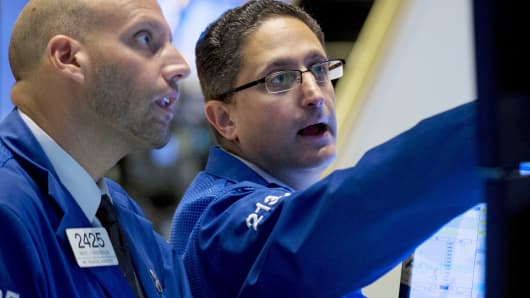
It’s fairly typical for companies to announce buyback programs this time of year. Often, existing buyback programs are ending, and the company will announce a new program.
However, given the notable decline in stock prices, market watchers are paying particular attention to whether existing programs are being expanded, or those companies who have never had buybacks will implement them in order to take advantage of lower prices.
While it’s early, there are several signs we are seeing somewhat more aggressive buyback announcements than usual:
1) According to Birinyi, through yesterday S&P 500 companies have announced $99 billion in buyback announcements, the strongest start to the year, ever. Their data goes back to 1985.
2) Several big names have recently announced significant expansions of existing buyback programs. Amazon just announced they were replacing their old $2 billion buyback with a $5 billion buyback. AndCisco approved a $15 billion increase in the buyback program. They had a big program, $97 billion, but there was only $16.9 billion left on it.
3) Several companies have announced buybacks for the first time. For example, after seeing sharp reductions in their stock, private equity firms Carlyle and Apollo all announced share buyback programs for the first time ever. Leon Black, the chairman of Apollo, announced a $250 million repurchase plan (about 5 percent of the market cap) and said: “at the current price levels for Apollo shares, we see a significantly undervalued company.”
KKR, which announced its first $500 million buyback in October of last year, just said it had repurchased 17.5 million shares for $270 million since then, a very aggressive purchase schedule which would seem to indicate they too think their shares are undervalued.
Lending Club also announced its first-ever buyback, for $150 million, which would be equal to roughly 6 percent of its market cap if fully executed.
All of this is interesting, but does it help investors? The real issue is whether there is a share count reduction. Share count reductions translate into higher earnings per share, all else being equal. You can announce a share buyback, but if on the other end you are handing out an equivalent number of options to employees, than the shares outstanding may not go down at all. That’s much less helpful to investors.
You can see this problem by looking at one company: Akamai, which recently announced a significant increase in its buyback program, from $130 million to $1 billion.
[“source -pcworld”]





